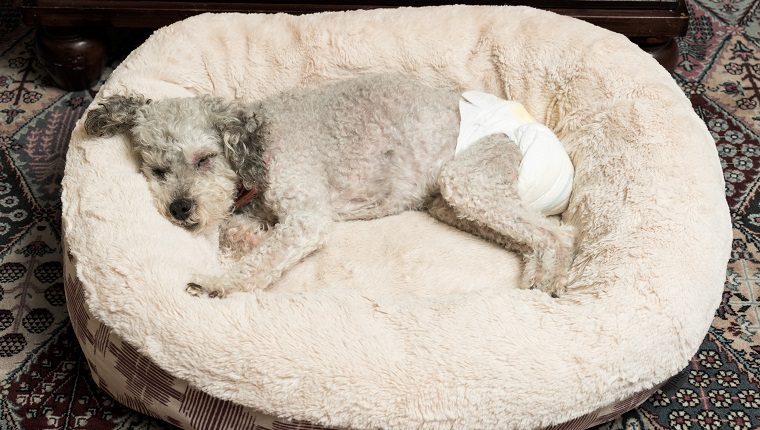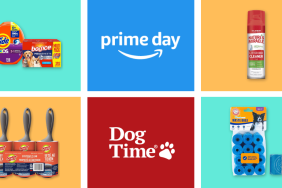Gold Souls, Gray Faces is a series that provides tips and advice to help you take care of your sweet senior dog. One of the problems many older dogs face is incontinence.
There are several reasons a dog might lose the ability to control when they go potty, and that can cause big messes in your home and further medical complications if it isn’t handled appropriately.
However, there are ways to reduce the effects of incontinence and properly clean up after messes to make things easier on your home and your senior pup. Here are eight tips that may help you deal with your gray-faced pooch’s incontinence.
Has your senior dog ever suffered from incontinence? How did you treat it and deal with messes around your home? Let us know in the comments below!
Click the bold links in the article to shop for your dog and support our content!
Ways To Deal With Incontinence In Senior Dogs
-
Find Out What's Wrong At The Vet Before Anything Else
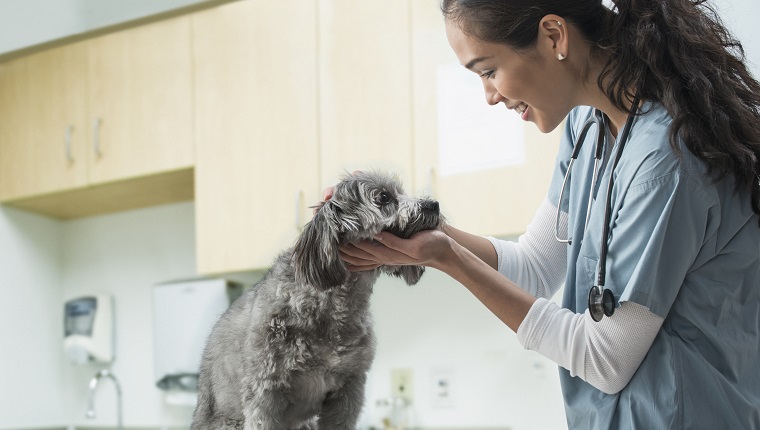
(Picture Credit: Jose Luis Pelaez Inc/Getty Images)
There are so many medical issues that can lead to incontinence, and the good news is that a lot of them are treatable. If your dog is having trouble controlling their bladder or bowel movements, there could be a simple medical explanation that your vet can catch.
On the other hand, incontinence can be a symptom of more serious issues, but it's still best to consult your vet so they can begin treatment as early as possible.
When you notice that your dog is having trouble holding it until they get outside, or if they're having frequent accidents in the house when they're already housebroken, you should always, always, always see a veterinarian.
-
Explore Medical Options For Treatment
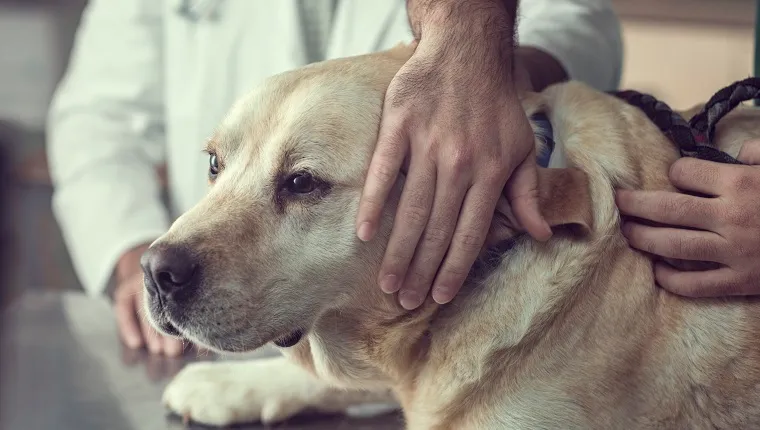
(Picture Credit: hoozone/Getty Images)
Several causes of incontinence in dogs are medically treatable. Kidney or bladder stones, for example, can be removed with surgery or broken up with medications, and they can be prevented by maintaining a healthy body weight, drinking water, and having a high protein diet.
Diabetes can be treated with insulin medications. Some infections can be treated with antibiotics. The medical options for treatment will depend on your vet's diagnosis.
Even if your dog is just getting old and their muscles aren't as strong as they used to be, there are therapies and medications that can strengthen the bladder and sphincter muscles, giving your dog more control.
The vast majority of dogs with incontinence benefit in some way from medical treatment, so don't lose hope.
It's important to note that some medications can lead to incontinence as a side effect. If your dog has developed incontinence as a result of taking a medication, talk to your vet about switching to another form of treatment.
-
Take More Frequent Walks & Potty Breaks
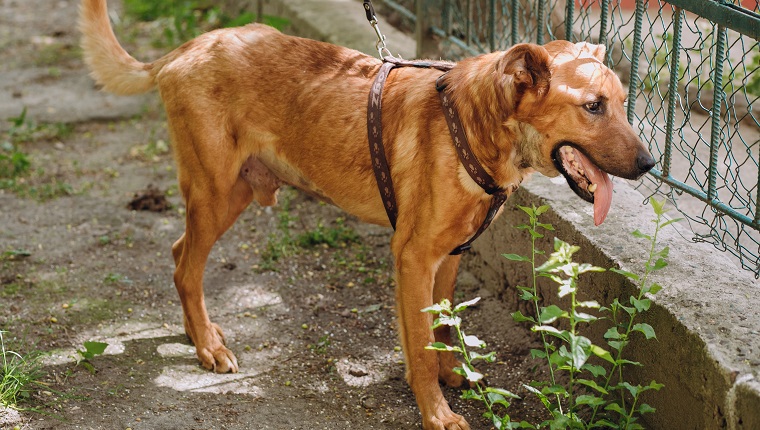
(Picture Credit: Bogdan Kurylo/Getty Images)
One of the ways to prevent messes in the house is to allow your dog to take more frequent potty breaks outside. Giving your senior ample opportunities to relieve themselves, especially in the morning when they wake up and before they go to sleep at night, can help a great deal.
The more chances your dog has to go outside, the less likely it will be that they lose control indoors and make a mess.
Your dog may also feel anxious when they have an accident inside because they know they aren't supposed to go potty there, so allowing them plenty of access to outdoor areas will help reduce accidents and anxiety.
-
Wash Your Dog's Bedding
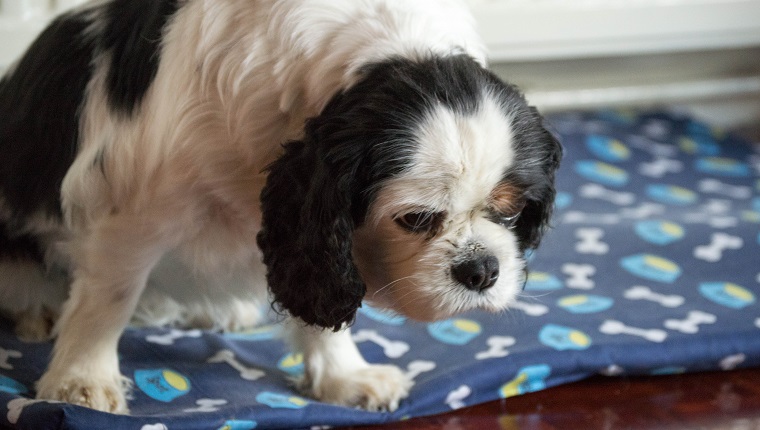
(Picture Credit: StephM2506/Getty Images)
Wherever your dog sleeps, make sure the bedding is easily washable, and make sure you take care of it after every accident.
Fecal matter can expose your dog to bacteria and parasites, and moist bedding can attract mold or cause infections in dogs.
Some dog parents rely on plastic coverings or towels to line their pups' beds. Find a solution that will allow your dog to sleep comfortably in a clean environment while making it easy for you to wash up after accidents.
-
Doggy Diapers & Belly Bands
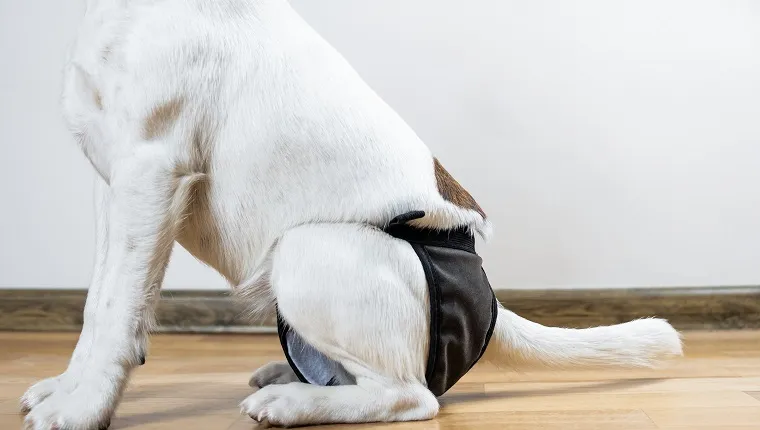
(Picture Credit: Photoboyko/Getty Images)
There are many products on the market that can at least prevent the messes that might come with incontinence.
Doggy diapers are available in all sizes. Some dogs don't like the feel of doggy diapers, and if that's the case with your dog, you may want to consider a belly band, which is a piece of cloth that goes around your dog's pelvic region and fastens with velcro.
For my senior dog, I used a belly band and cut a piece of a puppy pad to line it, which made it easier to dispose of messes. Belly bands are usually washable and reusable, so they are very practical.
Whatever solution you use, just make sure that you do not let messes stay on your dog. If you notice that they've had an accident, clean it right away and change their diaper or band. Failing to do so can result in irritation and infections.
-
Keep Your Dog Clean & Dry
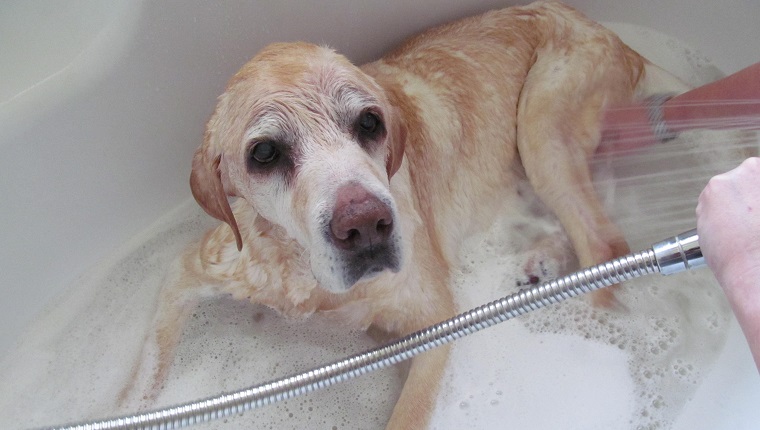
(Picture Credit: DenzilMann/Getty Images)
It can be very difficult to keep a dog clean when they suffer from incontinence, and there are additional challenges when it comes to bathing senior dogs. However, it is very important that you clean up any messes right away.
Moisture from urine can irritate the skin and lead to infections. Fecal matter is full of harmful bacteria and can attract parasites and pests.
Always make sure that your dog is staying as clean as possible to avoid further medical issues.
-
Ask Your Vet If You Should Limit Water & Food Intake Before Bed
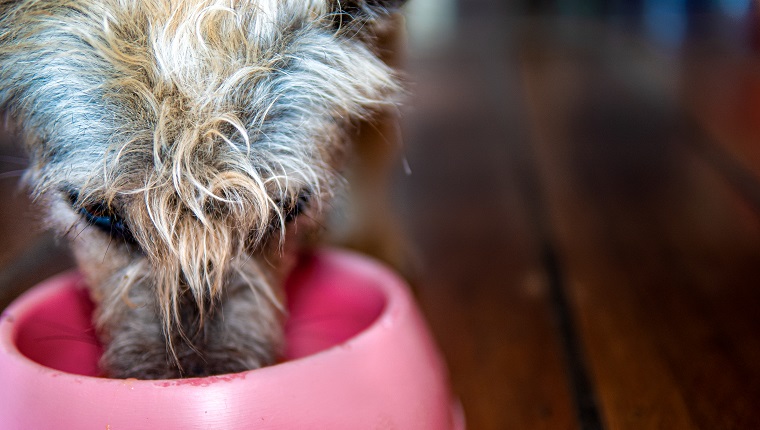
(Picture Credit: Placebo365/Getty Images)
For some dogs, it may be appropriate to limit their water and food intake before they go to bed at night. This can help them make it through the night without having accidents, which will also help them stay clean and reduce the need to wash bedding as frequently.
However, this is not a solution for every dog. Some medical conditions require that your dog have constant access to water, and some dogs get sick if they do not have at least a little bit of food in their stomachs at night.
Ask your veterinarian if it's safe for you to limit your dog's food and water.
-
Ask Your Vet About Dietary Changes
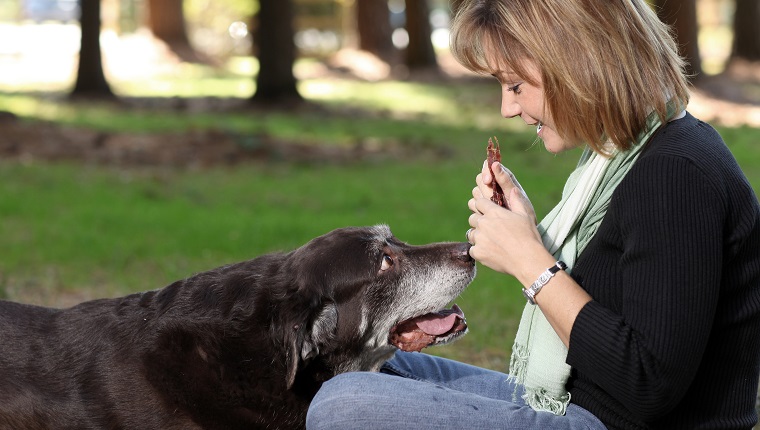
(Picture Credit: Imagesbybarbara/Getty Images)
Sometimes adding fiber to your dog's diet or switching to a hypoallergenic diet can firm up stools and prevent gastrointestinal upset that contributes to incontinence.
Other medical conditions can be managed by dietary changes, and that can reduce secondary symptoms like incontinence. Some diets can change the acidity of urine and prevent stones, for example.
Obesity can also contribute to stones, and a healthy, high-protein diet with exercise can help prevent that.
You should always ask your vet before making changes to your dog's diet, so discuss your dog's food with your vet and see if changes are appropriate.
